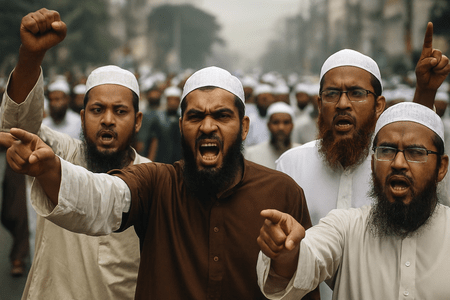New Delhi, September 4:
The enforced regime change in Bangladesh was expected to steer the country in a positive direction. Instead, under the leadership of Muhammad Yunus, the situation appears to be deteriorating, with growing concerns over human rights and women’s rights.
Until the COVID-19 pandemic, Bangladesh had shown steady progress in economic growth and social stability. However, Yunus—accused by many of being aligned with the Jamaat-e-Islami and influenced by Pakistan’s ISI—has overseen a disturbing shift. In recent months, radical Islamist groups have gained ground, imposing a Taliban-style moral code. Women have faced public shaming and even assault for their attire, while minorities are increasingly vulnerable.
At the forefront of this transformation is Hefazat-e-Islam (HeI), an outfit long opposed to women’s empowerment. The group insists that men and women cannot be equal and has resisted reforms such as criminalising marital rape, ensuring inheritance rights, equal parental rights, increased parliamentary representation for women, and protections for sex workers. It also rejects measures promoting education and skill development for women.
Formed in 2010 to oppose Sheikh Hasina’s women’s development policy, the HeI has resurged after her government’s fall. Backed by Jamaat-e-Islami, it now openly challenges reforms and fosters an anti-India stance. Indian agencies warn that the group, once considered moderate, is regaining its radical edge, clashing violently with political opponents and spreading extremist ideology.
The HeI’s contradictory signals—condemning Al-Qaeda publicly while leaders boast of ties with global jihadists—make it harder for security agencies to pin them down. Critics argue this is a deliberate strategy to avoid bans while continuing radical mobilisation.
With Yunus struggling to restrain hardliners, Bangladesh risks sliding toward Talibanisation, threatening its democratic fabric and regional stability.


















